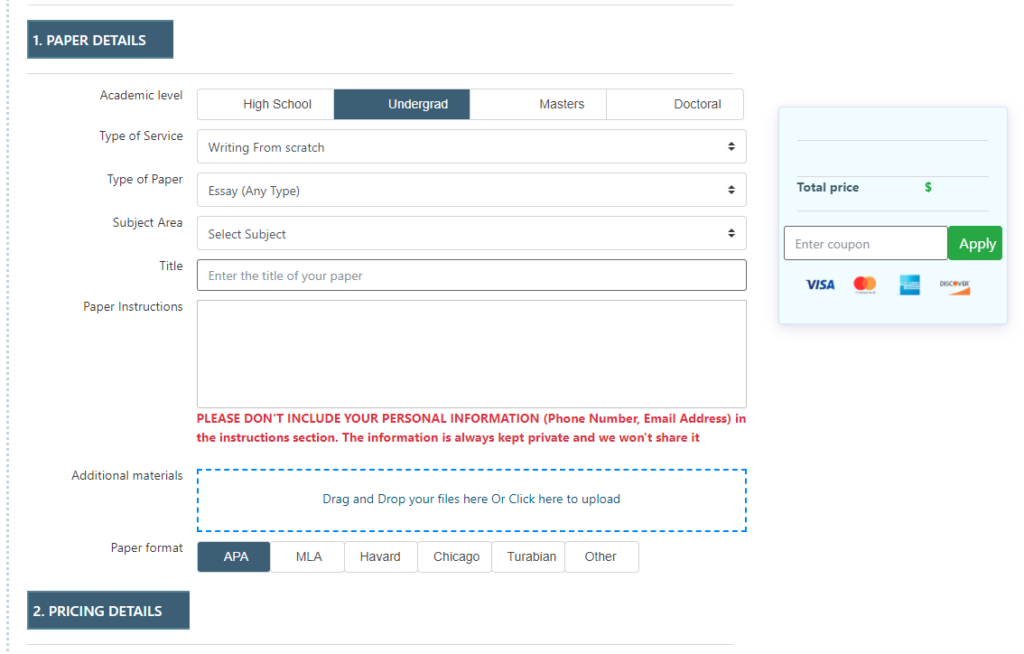TYPES OF SEMANTIC RELATIONS
EXERCISES
- Compare the meanings of the given words. Define what semantic features are shared by all the members of the group and what semantic properties distinguish them from each other. What relations are the words in italics connected with?
A)
| Wage | A fixed regular payment, typically paid on a daily or weekly basis, made by an employer to an employee, especially to a manual or unskilled worker. |
| Salary | A fixed regular payment, typically paid on a monthly basis but often expressed as an annual sum, made by an employer to an employee, especially a professional or white-collar worker. |
| Pay | The money paid to someone for regular work |
| Fee | A payment made to a professional person (for example, to a lawyer, writer) or to a professional or public body in exchange for advice or services |
| Income | Money received, especially on a regular basis, for work or through investments |
B)
| Reputation | The general opinion that people have about a person, organization based on what they have heard, read, seen, or experienced |
| Image | The idea or opinion that people have about a person, organization, especially when this has been deliberately made or planned |
| Name | The reputation a person or an organization has because of something they do or because of the quality of what they produce, usually when this is good |
| Prestige | The respect and good reputation a person, organization has because they have a high position in society, are admired by people |
| Stature | A reputation for being very good at something very important or influential that makes people respect you |
- Match words with the definitions and give examples to illustrate the difference in the meanings. What is the common sense in these adjectives? What type of intralinguistic relations are the words in italics based on?
| unhappy | very sad because you are uncomfortable, lonely or ill |
| depressed | sad and having no hope for the future |
| gloomy | slightly depressed |
| down | sad because a person or a situation has made you feel like this |
| sad | feeling unhappy especially because smth. bad has happened |
- A) Give definitions to the following verbs: sniff, cough, puff, yawn, hiccup, stammer, snore, sigh, pant, whisper, sneeze, groan.
B) What common feature do these verbs have?
C) Put each of the these verbs in its correct place in the sentences below.
- He was so nervous he could only ……….., ‘I…I…I’m pleased to meet you.’
- Don’t……….all the time. Use a handkerchief and blow your nose.
- If we are out of breath after running we………..and……… .
- It is said that people……….if they sleep with their mouths open and on their backs.
- He drank a lot of beer quickly and began to………. .
- If you have a cold and you…………, we often say ‘Bless you.’
- Don’t speak so loud! Just………. . The children are asleep.
- I always used to……….in history lessons. They were so boring.
- He can’t stop talking. We always………with relief when he goes away.
- Smoking always makes me……… .
- My children……….when I tell them they must go to bed.
- A) Give definitions to the following verbs: stray, wander, creep, stagger, crawl, limp, trip, stroll, dash, march, trudge, slip.
B) What is the hyperonym (classifier) of these verbs?
C) Put each of the these verbs in its correct place in the sentences below
- He was completely drunk. I watched him………..across the road and fall down.
- It’s very pleasant for a tourist to……….round a new city with no particular purpose or destination.
- It was a lovely day so we decided to………in the park for an hour.
- His injured foot made him…………badly.
- Be careful or you’ll………..on this icy bit of pavement.
- Everyone was asleep when I returned so I had to………to my room without making a noise.
- If you join the army, you’ll have to learn to……… .
- Please don’t………away from the main group or you’ll get lost.
- Before babies can walk, they can only………on their hands and knees.
- I’m afraid someone will………over that piece of wood and fall.
- It began to rain and we had to………into a shop to keep dry.
- The exhausted men had to……….for five miles through the snow.
- Organize the given words in accordance with their hyponymic relations. Enumerate the general terms (hyperonyms). Draw a diagram.
- Train, light lorry, bicycle, vehicle, cabriolet, car, heavy lorry, estate car, motorcycle, bus, lorry, three-door hatchback, three-way dump truck;
- Turtle, mammal, squirrel, animal, reptile, seal, tiger, lizard, leopard, fox, wolf, iguana, bear, snake, feline, panther.
- Group the sentences into pairs so that in one sentence there should be a hyperonym (the most general term) and in the other – the hyponym (the more concrete term).
Model: The man was murdered – The man was poisoned.
1. He heard a bird singing. 2. The man was poisoned. 3) She looked at him. 4. He heard a nightingale singing. 5. He is as officer. 6. It’s an old car. 7. She was wearing a black dress. 8. They built a boat. 9. The man was murdered. 10. She stared at him. 11. He is a colonel. 12. It’s an old vehicle. 13. He gave her a ring with 5 precious stones as a birthday present. 14. They bought flowers in the shop. 15. She was wearing a dark dress. 16. She has got a child. 17. They built a yacht. 18. They bought lilacs in the shop. 19. She has got a daughter. 20. He gave her a ring with five emeralds as a birthday present.
- Identify the syntagmatic relations of the words. Choose the word (A, B, C, D) which best completes the sentences below.
- I can’t read who this postcard is from – someone’s ____ the ink.
a) marked b) wet c) sticky d) smudged - At this stage in his career, he is not ____ of taking on more responsibility.
a) competent b) able c) ready d) capable - The opening night of the play was ____ by a bad performance of the
leading role.
a) marred b) harmed c) reduced d) lessened
- We bought some ____ magazines to read at the airport.
a) trendy b) glossy c) bright d) glittering - He loves watching soap ____ three times a week.
a) series b) operas c) commercials d) episodes
- State the syntagmatic relations of the words. There are a number of words meaning money. Complete the sentences making a proper choice.
- I don’t have any currency/ cash/ dosh, I’ll have to pay with a card.
- We don’t accept foreign means/ cash/currency.
- We spent half our means/ savings on the lawyer’s fees.
- Do you have any cash/ change for the phone?
- I just don’t have the means/ savings to go on living in such a big house.
- We don’t accept foreign means/ cash/currency.
- Choose the more normal collocation in these sentences. Check them in the dictionary.
- I do feel a very deep/ profound sympathy for all of them.
My grandfather’s death had a deep/ profound effect on my father. - He was of medium height but had very wide/ broad shoulders.
They have a wide/ broad selection of carpets to suit all tastes. - In Italy we have done/ made a great deal to prevent pollution.
I did/ made little progress at the start of the course. - She used to wear fake/artificial jewellery.
An interview is a very fake/ artificial situation. - He looks so plain and dumpy/obese in the uniform.
In some parts of the country 15% of population is now considered to be dumpy/ obese.
- Look up the word viewin the dictionary. What does each of the expressions mean? Complete the following sentences, using one of the following phrases.
in my view in view (of) on view with a view to
- ________ the shortage of time each person may only speak for five minutes.
- The journalist wrote the story ________ embarrassing the government.
- We are, ________, still no further forward.
- There are almost 500 works ________ at the Modernist exhibition.
- ________ his youth, the police have decided not to press charges.
- He wants to find work but he has nothing particular ________.
- Read the sentences and choose one of the words in the second column to fill each gap.
| This is serious, and we must take ______ immediately. | act/ action |
| She always gets the _________ for being naughty. | blame/ fault |
| I’m three years ________ than Mike. | elder/ older |
| Later on, they felt ________ about cheating. | guilty/ embarrassed |
| Jane had already ________ the fire. | lit/ lighted |
| We live ___________ to the shops. | near/ dose |
| She was extremely __________ about his bad behaviour. | nervous/ annoyed |
| Is there anything to eat __________ biscuits? | besides/ except |
- Finish each of the following sentences so that it is as similar as possible in meaning to the sentence before it. Use a dictionary.
1. The teacher briefly explained the problem.
The teacher gave______________________ .
2. They contributed generously to charity every month.
They made______________________________ .
3. Whatever you feel about your colleague, you must carry on with your job.
No matter_______________________ .
4. Very few people go on holiday more than three times a year.
Hardly_______________________ .
- Read the following text and then choose the best phrase from the list below to fill each gap. Use a dictionary to check words that you do not know.
Five thousand people (a)__________________, an island named (b) _____________ on a lost Spanish ship in the year 1603. Amity Harbor, (c) ______________, was home to fishing ships and one-man gill-netting boats. It was a rainy, (d) ______________village which had seen better times. On winter nights its steep streets lay broad and empty under the rain. San Piedro also had a green beauty, (e) _______________ rising and falling (f) ____________ and the south. The island homes were built among fields of grass, grain and strawberries. Fences lined the careless roads (g)______________ the shadows of the trees and past the fields. Here and there an islander cut timber on his own, leaving sweet-smelling piles of dust (h)_______________.
By the sailors; the island’s only town; lived on San Piedro; wind-beaten sea; to the north; with enormous cedar-covered hills; at the side of the road; which slid beneath.
References:
- Зыкова И.В. Практический курс английской лексикологии. М.: Академия, 2006.
- Fedorova I.V. Dictionary in Use. Moscow: MSU, 2005.
- Ginsburg R.S. A Course in Modern English Lexicology. Moscow, 1979.
- Antrushina G.B., Afanasyeva O.V., Morozova N.N. English Lexicology. Moscow: «Дрофа», 2006.







